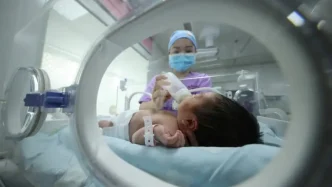In a growing trend that is costing Malaysia millions of ringgit annually, an increasing number of medical graduates are leaving the country to pursue housemanship in Singapore. Experts warn that this brain drain not only represents a significant loss of educational investment but also threatens to exacerbate an already strained public healthcare system. With the government reportedly spending between RM500,000 and RM1 million per student on subsidised medical education, the exodus of talent is sparking urgent calls for policy reforms to retain these professionals.
The numbers paint a stark picture. According to Prof Datin Dr Marina Mat Baki, dean of the Faculty of Medicine at Universiti Kebangsaan Malaysia (UKM), only two graduates moved to Singapore for training in 2020. That figure surged to 15 in 2021, 25 in 2022, and 30 in 2023. “This is a significant loss for Malaysia as the tuition fees for medical courses are heavily subsidised by the government,” she said. The financial burden, coupled with the loss of skilled professionals, has prompted concerns about the long-term sustainability of Malaysia’s healthcare sector.
A Costly Investment with Diminishing Returns
The economic implications of this trend are profound. Prof Dr Sharifa Ezat Wan Puteh, a health economics and public health specialist at UKM, estimates that the government invests between RM500,000 and RM1 million per student over a five-year medical course. This figure includes not only tuition but also the costs of training facilities, hospital placements, and faculty salaries. “The return on all the investments is lost because once the doctors work abroad, there is no benefit received by the local population,” she explained.
For a country that heavily subsidises medical education to ensure an adequate supply of healthcare professionals, the departure of graduates represents a double blow. Not only does Malaysia lose the financial investment, but it also faces a shortage of doctors to serve its growing population. Prof Sharifa highlighted that this talent outflow disrupts the provider-to-population ratio, potentially compromising access to medical care, particularly in rural and underserved areas.
Beyond the immediate economic loss, the ripple effects are felt across the public healthcare system. With fewer doctors available, existing healthcare workers face increased workloads, leading to burnout and further attrition. Dr Muhammad Yassin, a spokesperson for Hartal Doktor Kontrak, a group advocating for contract doctors, warned that this could create a vicious cycle. “This will lead to more burnout and overwork, which may in turn lead to more exodus out of the Health Ministry, either to the private sector or overseas,” he said. The result, he cautioned, could be a healthcare system delivering suboptimal care at a time when rising insurance costs and medical inflation are pushing more Malaysians to rely on public facilities.
Why Singapore Beckons
Singapore’s appeal to Malaysian medical graduates lies in its structured training programmes, competitive remuneration, and clearer career progression pathways. According to the Singapore Medical Council, only graduates from UKM and Universiti Malaya are eligible for housemanship in the republic, a selective policy that underscores the high regard for these institutions. However, this exclusivity also means that Malaysia’s top talent is being siphoned off by a neighbouring country with better resources and opportunities.
Returning to Malaysia after training in Singapore is not straightforward, further discouraging graduates from coming back. Prof Marina noted that those who complete their housemanship in Singapore must meet the stringent requirements of the Malaysian Medical Council (MMC) to practise locally. “If the training was not completed as per MMC’s requirements, they will need to fulfil the postings that haven’t been done in Malaysia before they can be certified and continue as a medical officer here,” she explained. While returning as a specialist is an option, the process can take up to a decade and requires certification from MMC-approved bodies—a significant barrier for many.
Additionally, opportunities for Malaysian graduates to pursue specialist programmes in Singapore may be limited, as Prof Marina pointed out. This raises questions about whether the short-term benefits of training abroad outweigh the long-term challenges of reintegrating into Malaysia’s healthcare system.
Strain on an Overburdened System
The departure of medical graduates is not just a financial issue; it is a human one. Malaysia’s public healthcare system, which serves a large portion of the population, is already under pressure due to understaffing and resource constraints. The loss of even a small number of doctors can have a disproportionate impact, particularly in a country where the demand for healthcare services is rising due to an ageing population and increasing chronic disease prevalence.
Dr Yassin warned that the talent outflow could exacerbate existing challenges, including long waiting times and reduced quality of care in public hospitals. “The overall effect will be a healthcare system with suboptimal care for the patients as more and more are depending on the public healthcare system due to the increase in insurance price and medical inflation,” he said. His concerns are echoed by many in the medical community who see the brain drain as a symptom of deeper systemic issues, including inadequate working conditions and remuneration for healthcare workers.
Searching for Solutions
Addressing this crisis requires a multi-pronged approach, experts argue. Prof Marina urged the government to expedite hospital postings for medical graduates immediately after they pass their final examinations. “As long as they pass their final examinations, they should be allowed to apply for and get their placement as soon as possible,” she said. Delays in placements, she argued, create uncertainty and push graduates to seek opportunities elsewhere.
Dr Yassin proposed more immediate reforms to improve retention, including increasing on-call allowances and reducing workloads for healthcare workers across the board. “There is also a need to find ways to reduce the workload of healthcare workers in general, not just doctors but also support staff,” he added. He also suggested exploring innovative models such as public-private partnerships or a national insurance scheme to alleviate pressure on government facilities by offloading patients to the private sector without compromising care quality.
Such measures, while promising, require political will and significant investment—resources that may be in short supply amid competing national priorities. If implemented, however, they could help stem the tide of talent leaving Malaysia and ensure that the substantial public investment in medical education yields benefits for the country’s own population.
A Regional Challenge with Broader Implications
Malaysia’s struggle to retain its medical graduates is not an isolated issue. Across South East Asia, countries face similar challenges as skilled professionals are drawn to higher-paying and better-resourced markets in Singapore, Australia, and beyond. This regional brain drain highlights the need for coordinated efforts to address disparities in healthcare systems and economic opportunities.
For Malaysia, the stakes are particularly high. The loss of medical talent to Singapore not only undermines the country’s healthcare ambitions but also strains bilateral relations, as the flow of professionals becomes a point of contention. While Singapore benefits from an influx of trained doctors, Malaysia is left grappling with the consequences of a diminished workforce.
Moreover, the issue touches on broader questions of national development and equity. How can a country balance the need to train world-class professionals with the imperative to retain them for the benefit of its own citizens? If the trend of medical graduates leaving continues unabated, Malaysia risks falling short of its goal to become a regional healthcare hub—a vision that depends on a robust and sustainable workforce.
Conditional Outlook: Uncertain Impacts
Looking ahead, the long-term impacts of this brain drain remain uncertain. If the number of departing graduates continues to rise, Malaysia could face a critical shortage of doctors within the next decade, particularly in specialised fields. Estimates of financial losses, while significant, are yet to be fully quantified across all universities and remain unconfirmed at a national level. Similarly, the potential for burnout among remaining healthcare workers, as highlighted by Dr Yassin, may worsen if systemic reforms are not prioritised—though no definitive data yet confirms the scale of this risk.
On the other hand, if the government acts swiftly to address placement delays and improve working conditions, there is a possibility that the outflow could be slowed. Innovative policies, such as those proposed by Dr Yassin, may also help redistribute patient loads and reduce pressure on public facilities. However, without concrete action, these remain speculative solutions in a complex and evolving crisis.
A Call for Urgent Reform
Malaysia stands at a crossroads. The loss of medical graduates to Singapore is a multifaceted challenge that demands urgent attention from policymakers, educators, and healthcare leaders. Beyond the immediate financial toll—estimated at millions of ringgit annually—the brain drain threatens to undermine the country’s healthcare system at a time when demand for services is growing.
Retaining talent will require more than just financial incentives; it will necessitate a fundamental rethinking of how medical professionals are supported, from training through to career progression. As the numbers of departing graduates continue to climb, the question remains: can Malaysia afford to lose its brightest medical minds, and if not, what must it do to keep them? The answer will shape the future of healthcare in the country for years to come.














